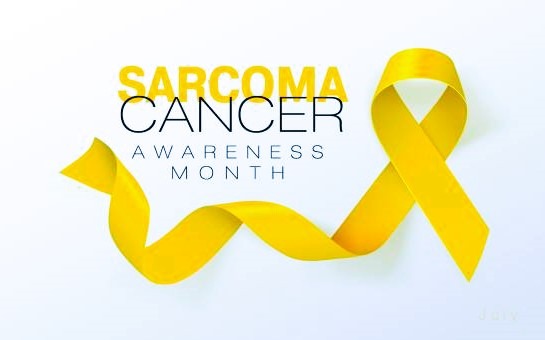Sarcoma Cancer: Causes, Symptoms, Treatment, and Precautions
Learn detail's about Sarcoma Cancer: Exploring the Causes, Symptoms, and Treatments. Learn about this rare form of cancer and take preventive measures. #SarcomaCancer


Sarcoma cancer is a rare type of cancer that develops in the connective tissues of the body, such as muscles, bones, tendons, and blood vessels. While it can occur at any age, it is most commonly diagnosed in children and young adults. Understanding the causes, symptoms, treatment options, and precautions associated with sarcoma cancer is crucial for early detection and effective management.
Causes of Sarcoma Cancer
The exact cause of sarcoma cancer is still unknown. However, certain risk factors have been identified that may increase the likelihood of developing this type of cancer. These risk factors include:
Genetic predisposition or inherited conditions, such as Li-Fraumeni syndrome or neurofibromatosis
Prior radiation therapy
Exposure to certain chemicals or toxins
Chronic inflammation
Symptoms of Sarcoma Cancer
The symptoms of sarcoma cancer can vary depending on the location and stage of the cancer. Some common signs and symptoms include:
A lump or swelling that may or may not be painful
Persistent pain in the affected area
Limited range of motion or difficulty moving
Fatigue and unexplained weight loss
Bone fractures or weakness
It is important to note that these symptoms can also be caused by other conditions, so it is essential to consult a healthcare professional for a proper diagnosis.
Treatment Options for Sarcoma Cancer
The treatment of sarcoma cancer depends on various factors, including the type, stage, and location of the cancer, as well as the overall health of the patient. Common treatment options include:
Surgery: The primary treatment for sarcoma cancer involves surgical removal of the tumor. In some cases, amputation may be necessary.
Chemotherapy: Drugs are used to kill cancer cells or shrink tumors before surgery, or to destroy any remaining cancer cells after surgery.
Radiation therapy: High-energy radiation is used to target and kill cancer cells.
Targeted therapy: Medications are used to specifically target certain genetic mutations or proteins in cancer cells.
It is common for a combination of these treatments to be used to achieve the best possible outcome.
Precautions for Sarcoma Cancer
While the exact prevention of sarcoma cancer is not known, there are certain precautions individuals can take to reduce their risk:
Regular check-ups: Routine medical check-ups can help detect any early signs of cancer or abnormalities.
Healthy lifestyle: Maintaining a healthy diet, engaging in regular physical activity, and avoiding exposure to harmful chemicals or toxins can contribute to overall well-being.
Protective measures: If you work in an environment with potential carcinogens, ensure proper protective measures are in place.
Genetic counseling: If you have a family history of sarcoma or other cancers, consider genetic counseling to understand your risk and potential preventive measures.
It is important to consult with a healthcare professional for personalized advice and guidance based on individual circumstances.
In conclusion, sarcoma cancer is a rare type of cancer that affects the connective tissues of the body. Understanding its causes, recognizing its symptoms, exploring available treatment options, and taking necessary precautions can contribute to early detection, effective management, and improved outcomes for individuals diagnosed with sarcoma cancer.
